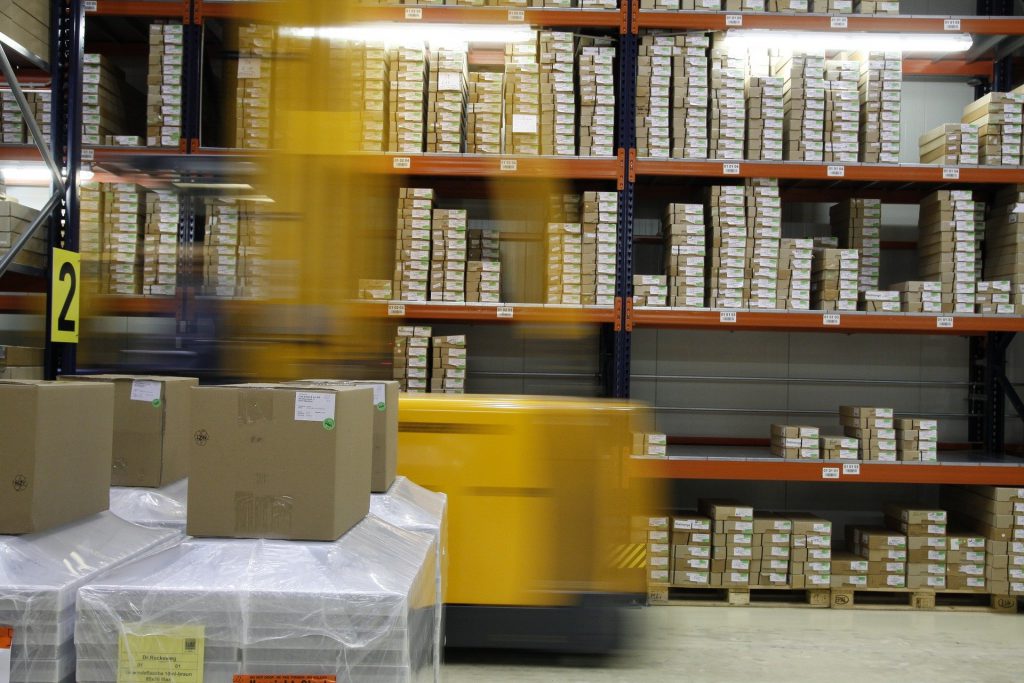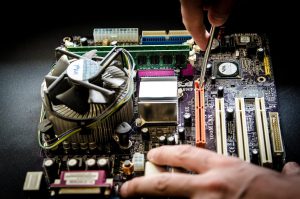Now is the time to think about ITAD
This post was contributed by Sarah Davies.

Over the last 2 months or so, many companies have undertaken large purchases and deployments of equipment to enable employees and students to effectively work from home. As lockdown rules start to be relaxed around the world, an important question arises: what’s going to happen to all the extra equipment that was deployed?
Here we look at how IT Asset Disposition (ITAD) can help in some key areas.
Working from home
The sudden spike in home working means organisations have substantially more hardware than they did 3 months ago – laptops, monitors, and mobile phones in particular. Whether due to the potential for further ‘lockdowns’ or simply that people, and businesses, have realised the various benefits of remote working, it’s likely that much of this ‘extra’ equipment will become part of business as usual going forward.
Maintaining equipment

One challenge you will face is an increased need to organise upgrades and repairs of home workers’ IT equipment. With more equipment in more locations, the logistics around this can be time-consuming to co-ordinate and manage. Looking to a 3rd party makes a lot of sense and this is a core offering for most ITAD companies.
As they’re typically considered to be ‘essential’ services, many of them are still providing these services right now: sending out labels and boxes to prepare and package equipment for return, and then arranging delivery of equipment – sometimes already set up with the user’s credentials – to keep the worker going in the interim period before they receive their kit back. ITAD companies can help ensure devices are clean before changing hands in order to ensure the safety of the receiver and ensuring a quick turnaround for all parties involved. For companies looking to continue their larger IT refresh projects, ITAD firms are also still able to collect and process larger quantities of equipment, tailoring services in line with social distancing, hygiene and safety requirements.
Another point where this will be necessary is as part of your Joiners, Movers, Leavers policy – shipping devices out to new starters and those changing roles, as well as recovering devices from those leaving for pastures new. Even without the added restrictions of COVID-19, a permanent increase in home working will require additional processes and capacity around the lifecycle management of hardware devices.
A word of caution – despite their ability to continue providing services, several ITAD companies have unfortunately already folded, leaving a lot of work for those that are left. These remaining companies have the same challenges as the rest of the world, and are working with fewer staff than usual and incorporating social distancing measures at their facilities, as well as regular facility cleaning – all of which can lead to lower efficiency and longer lead times. It’s important to bear this in mind when considering what SLAs can be offered internally to the business.
Back to the office

Not all companies will choose/be able to adopt widespread home working and even those who do will have certain staff that need/choose to return to the office. This means it’s likely that firms will find themselves with excess equipment – if that’s you, what are your options?
Reducing future purchases
Some companies will wish to reuse their own equipment within their staff base – using the surplus devices to reduce the need for new hardware purchases going forward. Some firms may struggle to find storage space for their refurbished kit – ITAD providers can often help with this. Refurbishing and reusing equipment is already becoming popular as some buyers struggle to source new equipment due to increased demand and disrupted supply chains.
Reselling hardware
Other companies will wish to resell their excess equipment to help generate revenue. Many ITAD providers have access to international channels through which they are able to sell equipment in order to generate the best possible financial returns. As well as cutting costs or making you money, using the right ITAD provider will also help you to cut waste. Most SMEs and large corporations will already have waste reduction goals; many of them work to prevent ‘waste electrical and electronic equipment’ (WEEE)where possible, and to reduce the disposal of it, in line with the WEEE Directive. ITAD is an important part of this puzzle and it shouldn’t be overlooked now. It’s imperative to deal with used assets appropriately and securely, even with everything else going on.
While most ITAD companies do not provide money back for recycled goods, it’s important to keep a keen eye on scrap markets, as these will determine whether service costs rise – and thus, whether firms will see a return from their used assets.
Keeping data safe
Ensuring the thorough cleansing of data from used IT assets is hugely important to ensure company and client security, and that you don’t fall foul of the various international data protection regulations such as the GDPR and CCPA. This is an area in which companies cannot afford to slip – while the UK’s Information Commissioner’s Office (ICO) has pledged to be more flexible due to the current climate, data breaches can lead to significant financial penalties; not to mention a loss in client trust and damage to company brand.
Partner Power
Finding the right ITAD provider is key to ensuring efficiency when it comes to dealing with used equipment that will be reused, resold, or recycled. ITAD companies ‘in the know’ will be able to advise companies how to best navigate the currently limited recycling avenues with some waste recycling outfits have temporarily shut and furloughed staff during the pandemic. Our ITAD Market Guide can help give an idea of who is out there in the market.
Looking ahead

Going into the second half of 2020 and beyond, ITAD is going to become more important to more organisations. If you don’t currently have an IT Asset Disposition program, now is a good time to start developing one and using an external partner can help get things up and running more quickly; having a trusted ITAD provider can be a great help in navigating some of the more intricate challenges of equipment management, both during the pandemic and afterwards.
Can’t find what you’re looking for?
More from ITAM News & Analysis
-
ITAMantics - April 2024
Welcome to the April 2024 edition of ITAMantics, our monthly news podcast where we discuss the biggest ITAM stories from the last month. George is joined this month by AJ Witt and Ryan Stefani. Stories tackled ... -
Broadcom is removing expired VMware licences from its portal - take action now!
Hot on the heels of Broadcom’s announcement of the end of perpetual licences for VMware it has given customers barely a week to download any keys for licenses from its portal with expired support. This is ... -
Who Loses When Broadcom Wins?
News of a new Broadcom deal rarely arrives with great fanfare. The November 2023 VMware acquisition provoked open worry online and in business circles, with many critics wondering whether the former Hewlett-Packard spinoff’s reputation would prove ...